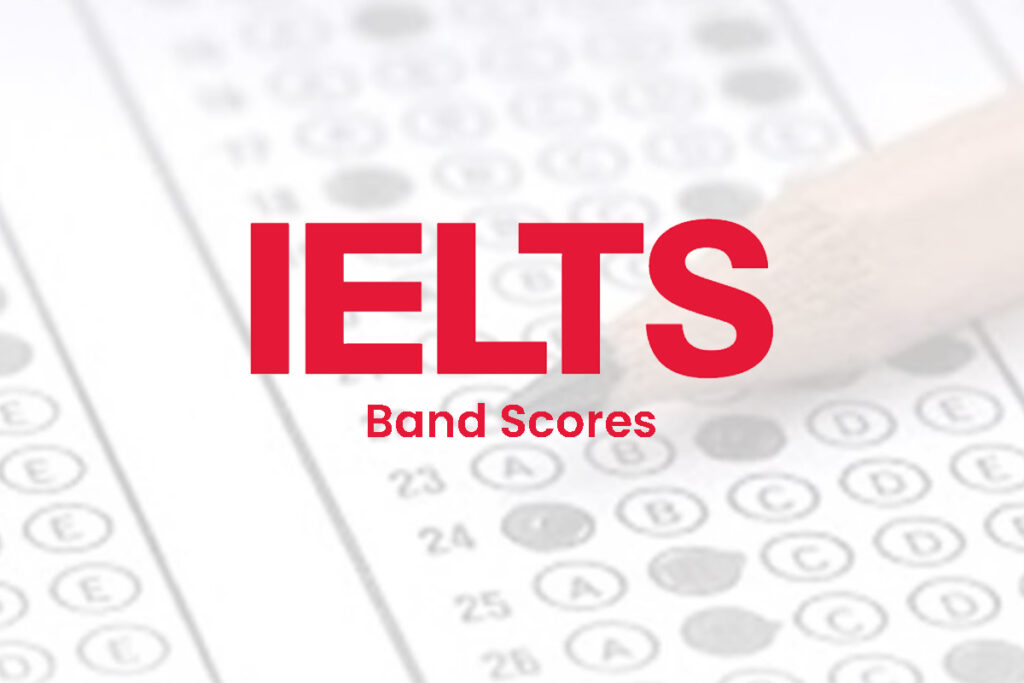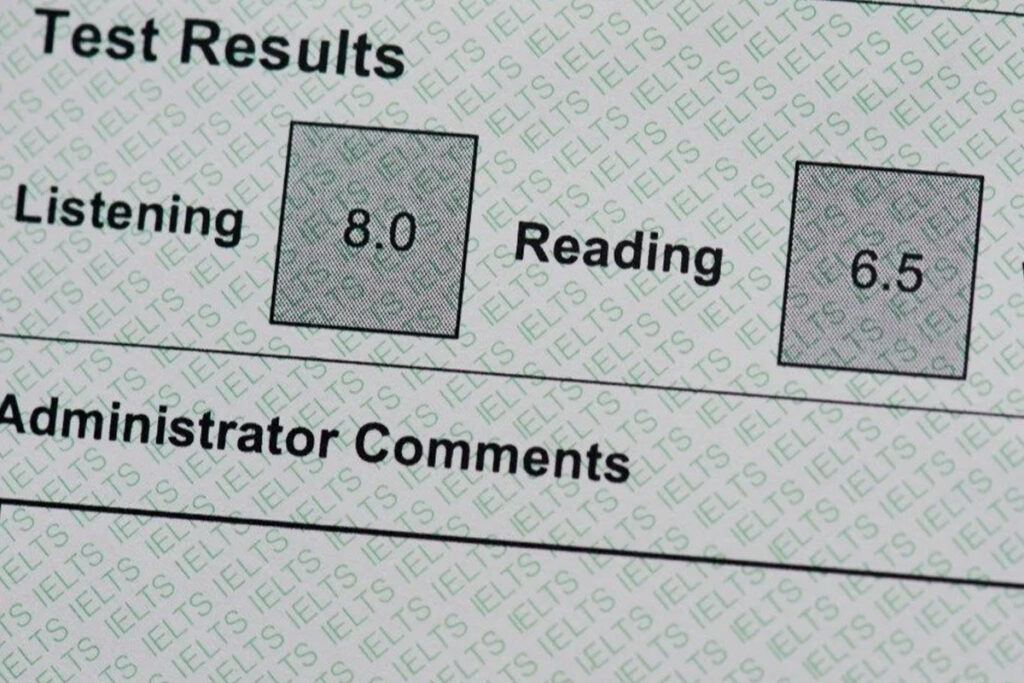When you receive your IELTS score card, it displays your IELTS test results including individual scores for Listening, Reading, Writing, and Speaking. The IELTS scoring system calculates your overall band score by averaging these four section scores and rounding it to the nearest half band.

IELTS Band Score 9 – Expert User
A test taker with an IELTS band score of 9 demonstrates full command of the English language. Their IELTS test results reflect highly fluent, accurate, and appropriate use of English, with complete comprehension in all contexts.
IELTS Band Score 8 – Very Good User
An IELTS score card showing a band score of 8 indicates a very good command of English. The test taker has fully operational language skills, with only rare and minor errors. According to the IELTS scoring system, they handle complex and detailed arguments effectively, though there may be occasional misunderstandings in unfamiliar contexts.
IELTS Band Score 7 – Good User
A band score of 7 on your IELTS score card reflects a good level of English proficiency. As per the IELTS scoring criteria, the test taker has effective command of the language, though there may be occasional errors or inappropriate word choices. They usually manage complex language well and can grasp detailed reasoning in most situations.
IELTS Band Score 6 – Competent User
An IELTS band score of 6 indicates a competent user on your IELTS score card. According to the IELTS scoring system, the test taker has a generally effective command of the language despite some inaccuracies or misuse. They can understand and use fairly complex language, especially in familiar contexts.
IELTS Band Score 5 – Modest User
An IELTS score card showing a band score of 5 reflects a modest user based on the official IELTS scoring system. The test taker has partial command of the language and can manage overall meaning in most situations, though frequent mistakes may occur. Despite this, they can handle basic communication related to their own field, as reflected in their IELTS test results.
IELTS Band Score 4 – Limited User
According to the IELTS scoring system, a band score of 4 on your IELTS score card indicates limited language skills. The IELTS test results show that the test taker’s basic competence is restricted to familiar situations, with frequent difficulties in both understanding and communication.
IELTS Band Score 3 – Extremely Limited User
As per the IELTS scoring criteria, a band score of 3 on the IELTS score card reflects extremely limited English ability. The IELTS test results suggest that the candidate can understand and express only general meaning in very familiar situations, with frequent communication breakdowns.
IELTS Band Score 2 – Intermittent User
As per the IELTS scoring criteria, a band score of 2 on the IELTS score card reflects an intermittent English ability. The IELTS test results indicate that the candidate has great difficulty understanding and expressing both spoken and written English, often struggling to communicate effectively.
IELTS Band Score 1 – Non-User
According to the IELTS scoring system, a band score of 1 on the IELTS score card represents a non-user of the English language. The IELTS test results show that the individual has no real ability to communicate in English, apart from producing a few isolated words.
IELTS Band Score 0 – Did Not Attempt the Test
As per the IELTS scoring guidelines, a band score of 0 on the IELTS score card indicates that the test taker did not attempt the test. The IELTS test results confirm that no answers were provided to any of the questions.

Listening
The IELTS Listening test has 40 questions, each worth 1 mark. These are converted to the 9-band scale as per IELTS scoring guidelines. Final IELTS test results are shown in whole or half bands on the IELTS score card.
Average scores for band levels:
Band 5: 16 marks
Band 6: 23 marks
Band 7: 30 marks
Band 8: 35 marks
Reading
The IELTS Reading test has 40 questions, each worth 1 mark. Scores are converted to the 9-band scale using the official IELTS scoring system, and results appear on the IELTS score card. Both Academic and General Training tests are graded on the same scale, but the Academic version often includes more complex texts. Hence, the IELTS test results for General Training may require more correct answers for the same band.
Academic Reading (out of 40):
Band 5: 15 marks
Band 6: 23 marks
Band 7: 30 marks
Band 8: 35 marks
General Training Reading (out of 40):
Band 4: 15 marks
Band 5: 23 marks
Band 6: 30 marks
Band 7: 35 marks
Writing
IELTS test results for the Writing section are based on four key IELTS scoring criteria:
Each task is scored separately, and the IELTS score card reflects the average. Task 2 is given more weight than Task 1 in the final score.
Speaking
The IELTS Speaking test is scored using four equally weighted IELTS scoring criteria:
The average of these determines the Speaking band on the IELTS score card. The IELTS test results reflect a balanced evaluation across all areas.
Understanding your IELTS test results, interpreting your IELTS score card, and knowing how IELTS scoring works are essential for effective preparation. Whether you’re aiming for academic admission, immigration, or career advancement, being informed helps you plan better and reach your target band score.
To know more about IELTS test formats, scoring tips, and preparation strategies, click here.
Also Check out details on BLS & ACLS training in Kuwait.
Salmiya : REG IMMIGRATION AND EDUCATION
2nd Floor, Building No.44, Yusuf, Yousef Al Bader St, Salmiya.
Jaleeb Al Shuyoukh :
Building No. 146
Floor 2, Street 6,
Block 4, Near Subway,
Jaleeb Al-Shuyoukh
Mangaf : 1st floor Building number 90
Street number 25
Mangaf block 4
Near Green Asia supermarket
Copyright © 2025 REG EDUCATION AND IMMIGRATION. All rights reserved. Powered by Zeekoi Enterprise Solutions